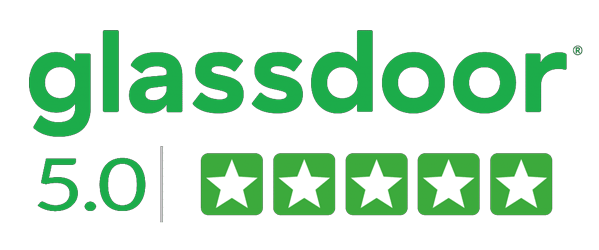
Future of HR: 11 Futuristic Ways to Embracing Innovation Through a Dynamic HR Service Provider
If you’re reading this article, you already know that the future of HR is indeed undergoing a significant transformation as it embraces innovation and leverages technology to optimize its services. We’re moving towards a data-driven future, and HR’s role is evolving beyond traditional personnel management to strategic workforce planning and development.
As AI’s influence grows, we must remember to keep the human touch in HR. Balancing technology with empathy, transparency, and a culture of learning is crucial.
As an HR service provider, we will talk about some key trends and aspects shaping the future of HR and revolutionizing the way HR functions are performed.
1- AI and Automation
A study by Grand View Research projected that the global HR software market, including AI-driven HR solutions, would reach a value of $30.01 billion by 2025, growing at a CAGR of 11.7% from 2018 to 2025 and $76.5 Billion by 2031.
HR providers streamline various processes by using AI-powered tools and algorithms, such as candidate sourcing, resume screening, and talent acquisition, leading to more efficient and effective hiring processes.
Chatbots and virtual assistants that use AI boost employee engagement by giving instant answers and automating HR tasks. This saves time for HR professionals, who can then focus on important strategic initiatives.
AI analytics and predictive tools provide valuable insights into workforce trends and behaviour, helping HR make better data-driven decisions and become more agile.
As technology improves, HR services become smarter and more responsive, meeting the dynamic needs of businesses and employees while still maintaining a human touch for a balanced approach.
2- Remote Work and Flexibility
Before COVID-19, only 7% of the US workforce had the option to work from home regularly, and around 40% of companies offered flexible work arrangements. After COVID-19, remote work surged, with 42% of the US workforce working remotely full-time and about 82% of companies adopting permanent flexible work policies.
HR service providers use technology to support remote teams, promote work-life balance, and maintain employee engagement. By focusing on digital tools and virtual communication, these providers adapt talent management processes to meet the needs of the modern workforce, enabling companies to attract top talent and enhance overall productivity.
3- Diversity, Equity, and Inclusion (DEI)
One of the ways HR is influencing the future is by emphasizing diverse hiring, treating employees fairly, and creating an inclusive workplace. This includes offering DEI training, establishing non-discrimination policies, and encouraging open conversations about sensitive issues.
By embracing DEI, HR service providers can help organizations build diverse and innovative teams, enhance employee satisfaction and productivity, and foster a culture of belonging, ultimately driving positive change and shaping the future of HR towards greater equality and inclusivity.
4- Agile Talent Management
Agile principles, traditionally applied in software development, are now being adapted to HR practices, enabling service providers to quickly identify and address the evolving needs of organizations.
According to a survey conducted by Gartner, 70% of HR leaders reported that agile workforce practices have helped them attract top talent.
By embracing agile methodologies, HR service providers shape the future of HR with increased flexibility, collaboration, and high-performing teams, responding efficiently to changing business needs and staying competitive in dynamic markets.
5- Emotional Intelligence
HR service providers incorporate emotional intelligence (EI) into their methods, enabling HR professionals to empathize, understand, and connect more deeply with employees.
EI assists HR professionals in better grasping and addressing employees’ emotional requirements, resulting in enhanced employee engagement, productivity, and overall well-being. It enables HR teams to handle conflicts and challenges with greater sensitivity and tact, promoting effective communication and collaboration across the organization.
As businesses evolve, embracing Emotional Intelligence as a core aspect of HR services will be pivotal in cultivating healthier workplaces and driving long-term success.
6- Gig Economy Integration
The Gig Economy, characterized by temporary and flexible work arrangements, has gained momentum, and HR service providers are embracing this trend to adapt to changing workforce dynamics.
By including gig workers in their talent pools, HR service providers can give clients the ability to access a diverse and skilled workforce whenever they need it. This helps companies expand their workforce quickly and obtain specialized expertise for short-term projects.
As a result, it creates a flexible and responsive work environment that encourages innovation, efficiency, and adaptability in a constantly evolving job market.
7- Blockchain for HR processes
A blockchain is like a digital notebook that keeps a secure and unchangeable record of information. It helps HR by making processes more trustworthy and efficient, like verifying employee credentials and managing data. It’s like having a super-safe and reliable HR assistant that ensures everything is fair and accurate.
Blockchain can make HR tasks like hiring and paying employees more efficient and secure. It also helps them keep accurate records and prevent fraud.
As Blockchain technology evolves, HR service providers will continue to leverage its potential to deliver more efficient and trustworthy HR services.
8- Upskilling and Reskilling
HR service providers are embracing the idea of continuous learning and development by investing in comprehensive training programs for HR professionals, equipping them with the latest tools and practices.
This fosters continuous learning, helping HR personnel stay ahead in talent management, employee engagement, and organizational development.
A survey conducted by the World Economic Forum found that 94% of business leaders believed that upskilling and reskilling were crucial for their workforce’s future success.
This approach allows HR service providers to offer better solutions and guide organizations through workforce changes and technological advancements, leading to a future-ready workforce and business growth.
9- Employee Well-being and Mental Health
HR service providers have always recognized the importance of employee well-being and mental health, but the pandemic has made these concerns even more critical.
Before the pandemic, there were wellness programs and support systems in place. However, due to the challenges of remote work, isolation, and increased stress during the pandemic, these programs have evolved and strengthened.
A study by FlexJobs and Mental Health America indicated that 75% of people have experienced burnout at work, with 40% saying they’ve experienced burnout specifically during the pandemic. And 37% of employed respondents say they have worked longer hours than usual since the pandemic started.
HR service providers are now focusing more on mental health resources, flexible work options, and initiatives to assist employees in dealing with the effects of the pandemic.
10- Environmental and Social Responsibility
With increasing awareness of environmental issues and social inequalities, these providers are taking proactive steps to drive positive change.
By adopting sustainable practices, promoting diversity and inclusion, and supporting community initiatives, HR service providers are not only enhancing their own reputation but also influencing the entire HR landscape.
Through their commitment to ESR, they are setting a powerful example for businesses worldwide, encouraging a more responsible and compassionate approach to human resources that fosters a brighter and more sustainable future for all.
11- Employer Branding and Candidate Experience
In the world of HR services, two essential factors are shaping the future: Employer Branding and Candidate Experience. HR service providers are adopting these concepts to help companies attract and keep the best employees.
Employer branding is about presenting a company as a great place to work by highlighting its unique qualities. Meanwhile, Candidate Experience focuses on providing a smooth and enjoyable recruitment process, leaving a positive impression on applicants.
According to Glassdoor, 75% of job seekers prefer companies that actively manage their brands. LinkedIn found that strong employer brands attract 50% more qualified applicants.
In Conclusion:
As a leading HR service provider, we fully embrace innovation to shape the future of HR. We prioritize AI, EI, remote work, DEI, agility, gig economy integration, blockchain, upskilling, well-being, and social responsibility. At WhiteCollars, we are committed to creating a brighter and more inclusive future for HR and your workforce.


